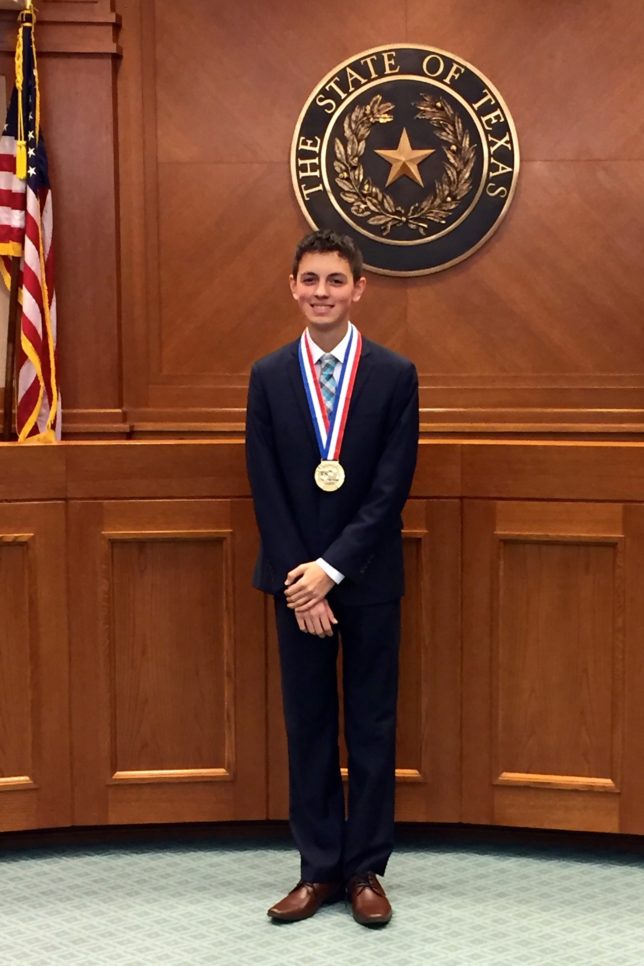By Toni Garrard Clay/AISD Communications Coordinator
Athens High School’s Matthew Hernandez can add 4A UIL Congressional Debate State Champion to his already impressive list of accomplishments. On Wednesday in Austin, the senior became the first Hornet in recent memory to win a championship in the contest. In 2016, he made the top 30 in extemporaneous debate at the national speech and debate tournament and, along with partner True Head, won state in UIL Cross-Examination Debate for the second year in a row.
“I couldn’t have done it without the teammates who did research and everything else for me,” said Hernandez of his latest achievement. Last year, he advanced to finals in congress. This year, he said, he put a lot more work into preparing for the event.
In addition to winning the title, Hernandez was also chosen by fellow congressmen as presiding officer, which involved reaching out to garner individual support before the session started, as well as a 20-minute audition speech in front of the full chamber.
Hernandez started as one of 54 students competing in the preliminary round of the state contest. “When they said my name (as the winner), everyone was standing and clapping, and my coaches were hugging me,” he said.
Those coaches are Carver Hodgkiss, AHS’ new speech and debate teacher, and Nicole Cornish, UIL coordinator, speech and debate mentor, and AHS dean of accountability and instruction.
“I cannot express how proud I am of Matthew for all the work he’s put in,” said Hodgkiss. “This is indicative of a lot of research and effort on his part, and it feels good to see that work come to fruition.”
According to the University Interscholastic League, congressional debate is an individual contest in a large group setting that models our U.S. Congress. Contestants draft legislation (proposed laws and position statements) submitted to the tournament, and they research the docket of bills and resolutions dealing with real-world social and political policies prior to the contest to prepare their speeches. At the tournament, students caucus in committees, deliver a formal discourse on the merits and disadvantages of each piece of legislation, and vote to pass or defeat the measures they have examined. Parliamentary procedure forms structure for the discourse and students extemporaneously respond to others’ arguments over the course of a session.

